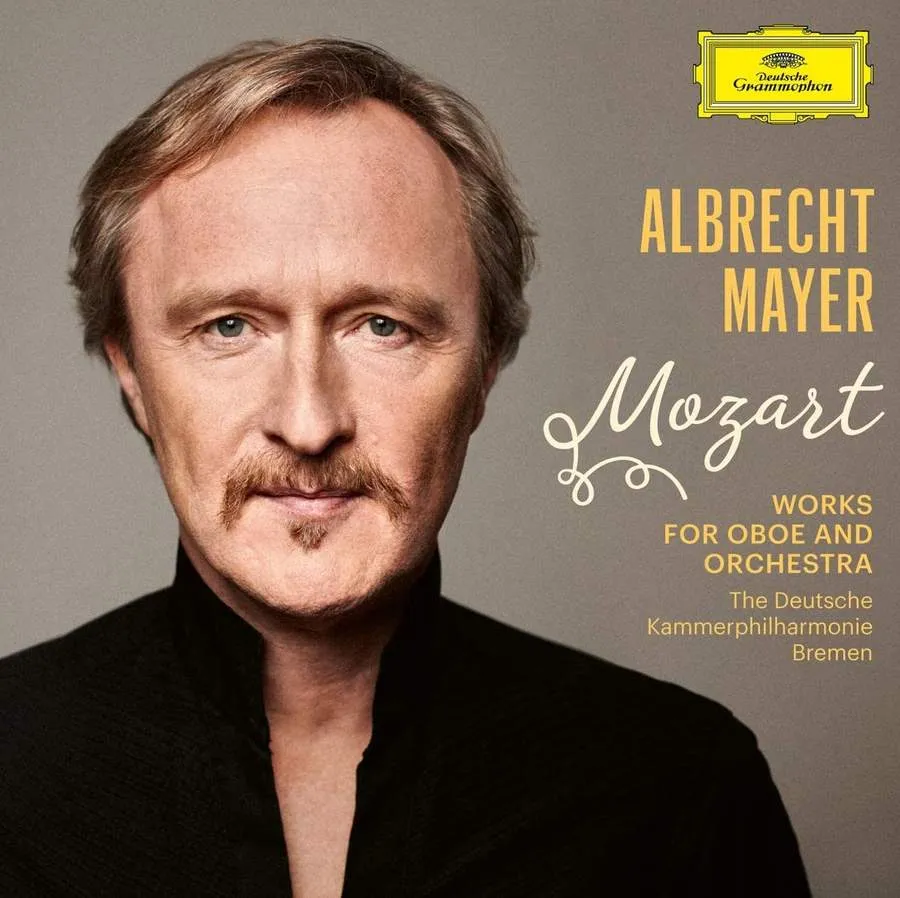
Mozart Works for oboe and orchestra: Allegro in F, K293 (completed Odermatt); Double Concerto, K299 (arr. Spindler), etc Albrecht Mayer (oboe, oboe d’amore, cor anglais), Vital Julian Frey (harpsichord); Deutsche Kammerphilharmonie Bremen DG 483 8232 80:02 mins
What you won’t hear on this recording is Mozart’s only oboe concerto, K314. Instead, what Albrecht Mayer, principal oboist of the Berlin Philharmonic, gives us is largely a generous selection of favourites in transcription.
The only piece originally for oboe, and the most interesting from a musicological point of view, is the Allegro in F major, K293, essentially the first movement of a concerto that Mozart left unfinished in 1778. Its surviving 61 bars have been completed by Gotthard Odermatt, and it makes for a graceful and sunny opener.
The other works include an arrangement for oboe and harpsichord of the Concerto for Flute and Harp, beautifully shaped by Mayer and Vital Julian Frey even if all those flying plectrums make for a busier listening experience than a harpist’s softer fingers. The choral motet Ave Verum Corpus becomes a smooth peroration for cor anglais. On oboe or oboe d’amore, Mayer makes light work of three soprano showpieces, culminating in Exsultate, Jubilate. Directed by Mayer and led by Daniel Lepec, the Deutsche Kammerphilharmonie Bremen is elegant in support.
Mayer’s breathing technique is, of course, phenomenal, and he’s able to shape Mozart’s vocal lines into long, easy spans in a way no singer could, propelling them smoothly along with no bumps or breaks. The only downside is that some of the original music’s interest is ironed out: it’s lovely, but it can be bland. After 80-plus minutes, you might feel that Mayer’s Mozart is a little too beautiful for its own good.
Read more reviews of the latest Mozart recordings
Erica Jeal